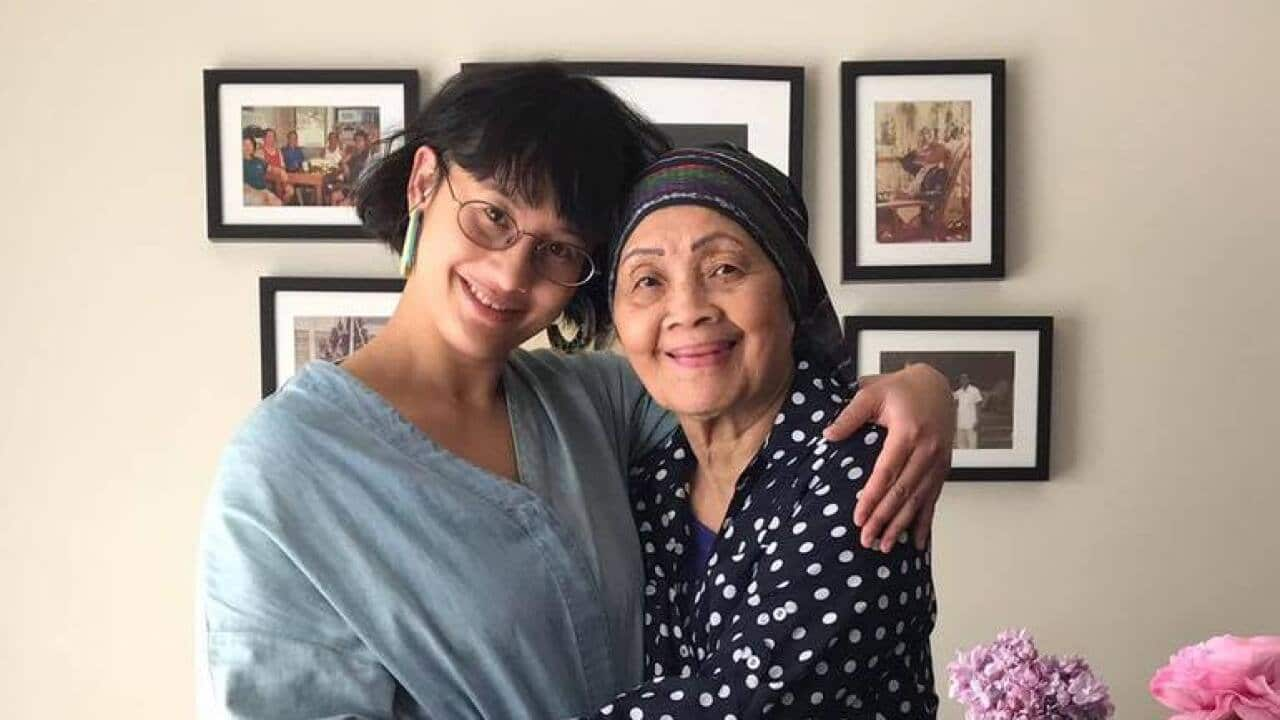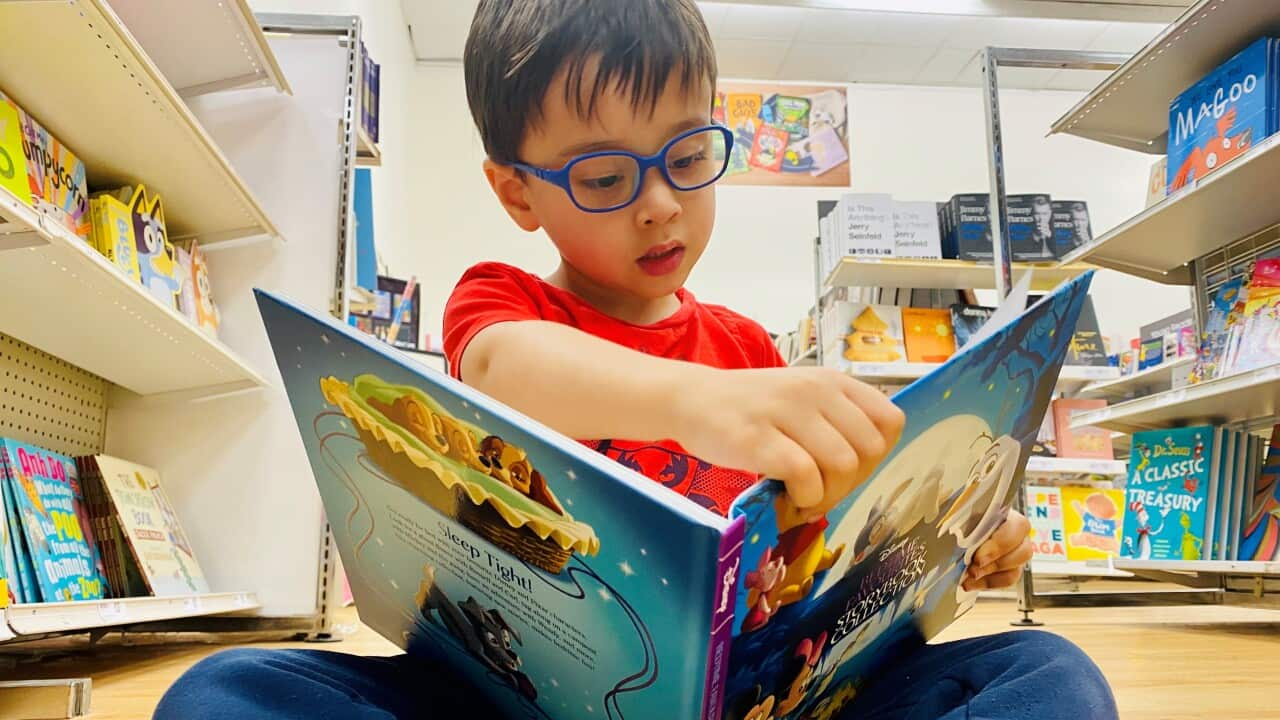Highlights
- Nena Tan wanted to equip her children and grandchildren with knowledge of Bisaya just in case they went back to the Philippines.
- Sandra and her family bond through music, especially Visayan songs.
- Sandra feels a responsibilty to continue what her lola taught her and to further Filipino culture.
* SBS Filipino's Pamana series is focused on podcasts and articles that not only promote how Filipino migrants hand down culture and tradition to the next generation, but how the next generation expands on them.
Listen to the interview
LISTEN TO

Musika ang paraan ng isang pamilya sa Victoria para maipasa ang wikang Bisaya
SBS Filipino
01/08/202217:05
"I'm not going to deprive my children and grandchildren of the culture I grew up with, especially the Visayan language. I don't want them to feel like foreigners in the country where we're from," 94-year old Nena Tan shares.
Because of her proactive push to teach tradition and culture, the motherland and the Visayan language are not foreign to her eldest grandchild, Australian-born Sandra.
It starts with interest
Lola Nena felt compelled to not only continue using the Visayan language when she moved to Australia, but to encourage her children and grandchildren to speak it.
"It's an individual decision. I can only speak for myself, but I didnt want my children and grandchildren to forget our history as Filipinos and as a family.
"I knew someday they would visit our province of Cagayan de Oro and I wanted them to feel at home when they did. I want them to be able to communicate. While the younger grandchildren aren't as fluent, her eldest grandchild Sandra took to the language easily and quickly.
While the younger grandchildren aren't as fluent, her eldest grandchild Sandra took to the language easily and quickly.

Lola Nena Source: Sandra Tan
"She was interested," Lola Nena says.
Sandra agrees, sharing, "I lived in Lola's house until I was five years old. I lived with my lola, lolo, Tito Bong, a few titas and my parents. I sort of had no choice but to learn the language. I was the only grandchild then."
Sandra admits that growing up multilingual gave her some interesting stories to share.
"For show and tell in school, I shared that during the holidays my cousin slept in our sala (living room). My teacher thought I said we let my cousin stay in our cellar," she laughs, adding "You're just mixing words all the time." Despite the occasional confusion, Lola Nena's push for the language proved useful when Sandra reconnected with her roots in the Philippines.
Despite the occasional confusion, Lola Nena's push for the language proved useful when Sandra reconnected with her roots in the Philippines.

Lola Nena's push for the language proved useful when Sandra reconnected with her roots in the Philippines. Source: Sandra Tan
"My Visayan was like a telegram - with a lot of full stops," Sandra laughs, adding, "I persevered until I didn't feel embarassed about how I spoke; but I got by. Even if it was difficult for me to speak, I understood everything they said to me."
Music and lyrics
Sandra's understanding of the language was furthered through the family's love of music.
have found that music and speech functions have many aspects in common and that each one benefits from the other. Researchers even theorise that the cognitive and social skills we develop through singing could have led to the development of language.
For the Tan family, the Visayan language and music are the focal points of their own interactions.
"Music is very contagious. Singing and participating in music make us feel good. I'm always happy to indulge in it," Lola Nena shares.
Indulging in music means singing carols during Christmas and Visayan songs during get-togethers as Lola Nena plays the piano.
'I feel a responsibility'
In as much as the music furthered Sandra's learning, the words gave her the appreciation of languages.
"I think that's actually why my work is in communications. I'm a writer and my work is in words. When I was young, I had to understand things for myself and piece together meaning," Sandra shares.
When it comes to finding meaning, Sandra works hard at advocating for the Visayan language as well as Filipino culture through her work with the . Working as the Media Manager of the group, she actively promotes involvement amongst first-generation Filipino-Australians to learn more about their history, culture, food and language.
Working as the Media Manager of the group, she actively promotes involvement amongst first-generation Filipino-Australians to learn more about their history, culture, food and language.

The Entree.Pinays Source: The Entree.Pinays
"Growing up, I didn't have many Filipino friends. It wasn't until I got involved with the that I realised the full scope of how diverse the experience of Filipinos are. When we talk about Filipino pride, it has more to do with the Tagalog culture, but there are other Filipino languages [and cultures] that are just as strong. Bisaya is one of those.
"The older you get, the more you realise that 'Oh this is really something that I need to put effort in to preserve for future generations.' I feel a kind of responsibility to at least record these things and remember them."


